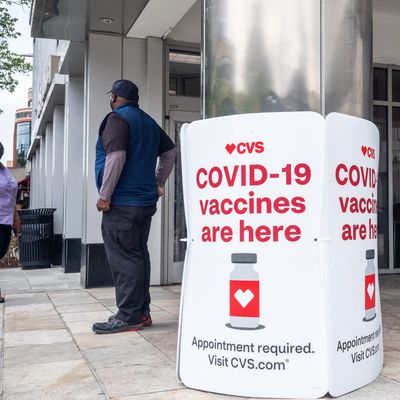
Fear is a powerful motivator. Just as concerns about the rise of the still-spreading Delta variant boosted vaccination rates earlier this year, uncertainty over Omicron has caused a significant increase in Americans signing up for a shot. On Thursday, the U.S. recorded 2.18 million shots —the “highest single-day total” of vaccinations since May, according to the White House — as the weekly average of doses administered was 22 percent higher than the week prior.
While the increased demand represents an important boost of protection in the early days of the second pandemic winter, it has largely taken place among Americans who are already vaccinated and are eligible for a booster after all adults were approved on November 19 to get a third dose six months after initial vaccination. White House data shows that of the 2.17 million shots administered on Saturday, 1.25 million were boosters, and around 554,000 were new vaccinations. Among the new vaccinations, many are children age 5 to 11, who became eligible for the Pfizer shot early last month.
Good news on the demand side has meant some difficulty for many pharmacies, where White House data shows that Americans are currently opting to go for nearly two-thirds of all COVID vaccines in the U.S. While walk-in vaccinations were largely available throughout the fall, patients may have to wait several days to sign up for a shot appointment at major chains like CVS, Walgreens, and Rite Aid — as staff shortages in some areas create further challenges. On Thursday, President Biden urged pharmacies to provide “more appointments, more walk-in hours — including on weeknights and weekends,” among other initiatives aimed at increasing vaccinations and access to testing. The White House has also instructed these large chains to make “family-based scheduling” available in the coming months, while CVS Health has hired thousands of pharmacy technicians since September to help administer doses.
With over 1,000 Americans dying every day from the virus and hospitalizations surging after a lull in early November, public-health experts are still concerned that the current numbers are insufficient — even as the vaccine’s level of protection against Omicron remains unclear. “I am not seeing a ton of progress among adults who have been eligible for a long time,” Ashish K. Jha, dean of the Brown University School of Public Health, told the Washington Post. “A lot of people in America are relying on infection-induced immunity to get them through the rest of this pandemic, and I think Omicron is going to test that in a way that nothing else has. I’m worried we’re going to see a lot of those people who’ve previously been infected and recovered get reinfected and potentially very sick.” In addition to the millions of American adults who have not gotten the vaccine, President Biden announced Thursday that roughly 100 million Americans who got their initial shots have not yet sought out a booster. Nevertheless, the country is about to pass a significant milestone in the vaccination effort, with 198 million vaccinated as of Saturday.
More on omicron
- What to Know About the New COVID Booster Shots
- The Dismantling of Hong Kong
- What We Know About All the Omicron Subvariants, Including BA.2.12.1






























